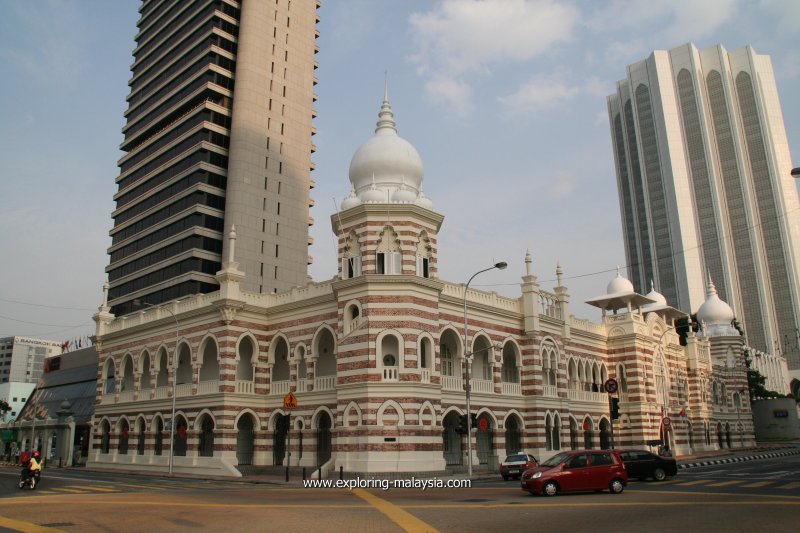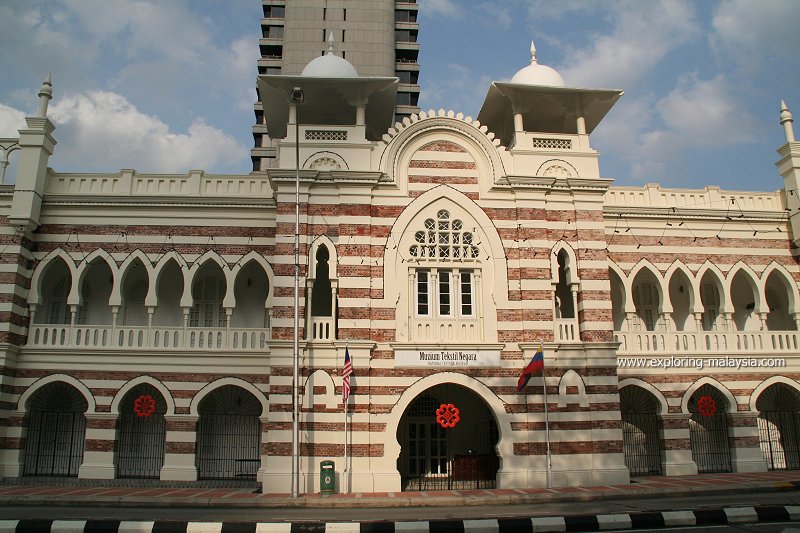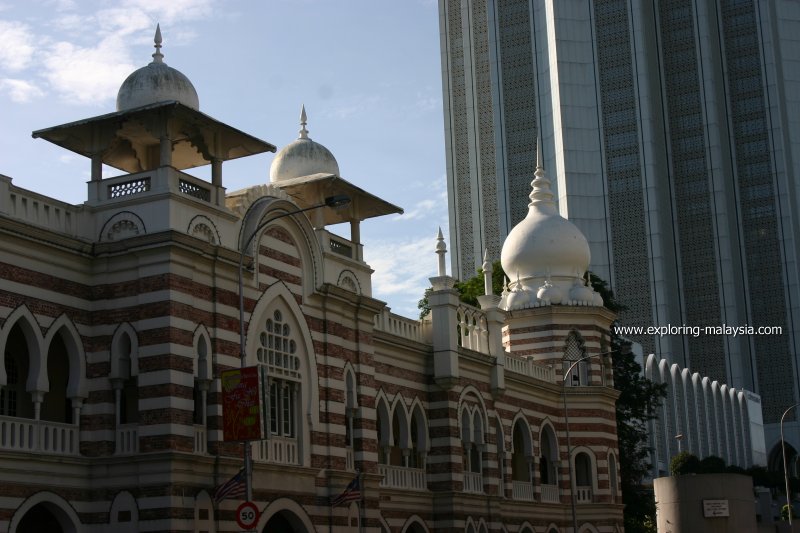 View of the National Textile Museum, from the junction of Jalan Sultan Hishamuddin and Lebuh Pasar Besar. (18 July, 2009)
View of the National Textile Museum, from the junction of Jalan Sultan Hishamuddin and Lebuh Pasar Besar. (18 July, 2009)
The National Textile Museum (GPS: ), or Muzium Tekstil Negara, is housed in the building which was originally built for the Federated Malay States Railway. Located on Jalan Sultan Hishamuddin, the building was designed by the prolific AB Hubback, who also designed most of the buildings reflective of the Mughal architecture (local writers often incorrectly call it Moorish architecture) which was adopted from Muslim India. The Textile Museum building was completed in 1905.
The Textile Museum wears the distinctive red and white banding achieved by alternating fairfaced bricks with plastered ones, a style also seen in other buildings designed by AB Hubback such the Masjid Jamek and the Ubudiah Mosque. The façade continues the Islamic style of the adjacent government buildings such as the Sultan Abdul Samad Building and the old General Post Office.
The Textile Museum on Google Maps Street View
The Textile Museum is  on the map of Museums in Kuala Lumpur
on the map of Museums in Kuala Lumpur
The main entrance of the Textile Museum comprises two pilasters topped by chatris - the raised onion-shaped domes derived from Mughal architecture of India. On each corner of the building are octogonal towers topped by a concrete dome surrounded by smaller ones.
The building today houses the Textile Museum. In this museum, you can learn the art of batik making and weaving using indigenous materials such as kain gerus, pua, songket and telepuk. The exhibits display samples of textiles of historical value and current fashions and designs.
The Textile Museum is open 9.00am to 6.00pm daily.
 Entrance, National Textile Museum (18 July, 2009)
Entrance, National Textile Museum (18 July, 2009)
 Cupolas on the National Textile Museum. AB Hubback derived his inspiration from Mughal architecture. (8 February, 2006)
Cupolas on the National Textile Museum. AB Hubback derived his inspiration from Mughal architecture. (8 February, 2006)
Back to Discover Kuala Lumpur; list of Museums in Kuala Lumpur and Museums in Malaysia

Copyright © 2003-2025 Timothy Tye. All Rights Reserved.

 Go Back
Go Back